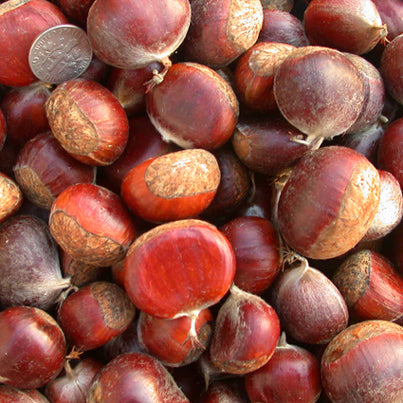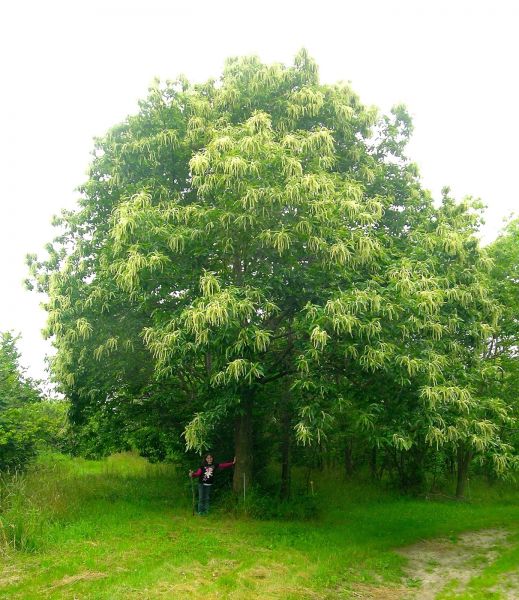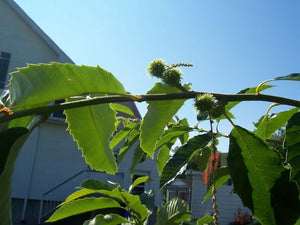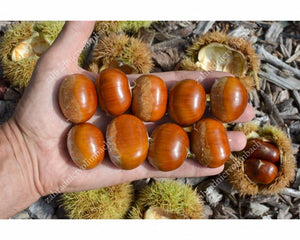Hybrid chestnut seedling 'Badgersett Minnesota' (Castanea dentata X mollissima) zone 4b
Shipping calculated at checkout
160 in stock
Need more? Contact us
This tree needs pollination
Compatible trees:
Hybrid chestnut Quebec seed source, Castanea dentata X Castanea Mollissima
Hybrid chestnut Quebec seed source, Castanea dentata X Castanea Mollissima
Chestnut tree Marigoule zone 6a
Chestnut tree Marigoule zone 6a
For zone 4b. Successful tests in zone 4b
Coming from one of the coldest and driest places in the United States, Minnesota. Several years of research were carried out to find this beautiful blend of chestnuts. A crossbreed of Chinese, American, European, Japanese and seguine chestnuts, they are so far along the path to domestication that it is no longer possible to say "this is a predominantly Chinese tree" - or any other variation. They are neohybrids. The genetics have been through testing winters of -35°C, extreme drought, cold summers, hot summers and chestnut blight. Most are not as large as the European chestnuts common in most supermarkets, but are very similar to the "North China" type, in size, flavor and ease of shelling. In China; they are precious.
Chestnuts like acidic soils and should never be limed unless a severe calcium deficiency is suspected. Alkaline soils should probably be acidified to ensure better plant establishment. Chestnuts show the most potential as annual nut crops in far southern Canada of all nut species. Indeed, their late flowering allows them to escape spring frosts and early ripening allows annual crops. The nuts are contained in squirrel-proof bugs and blue jays until they ripen and fall to the ground. All varieties have sweet nuts superior to European chestnuts often available in grocery stores around the holidays. Trees typically reach 35'-40' or (10-12 m) tall and should be spaced 20-40' or (6-12 m) apart. Production begins in 8-10 years from seedlings. Plant at least 2 different varieties for pollination. All of our varieties appear to be resistant to chestnut blight fungus, with the exception of the pure American chestnut.
Hardiness Zones
Specific port
Growth speed
Flowering period
Number of years for production
9 years





